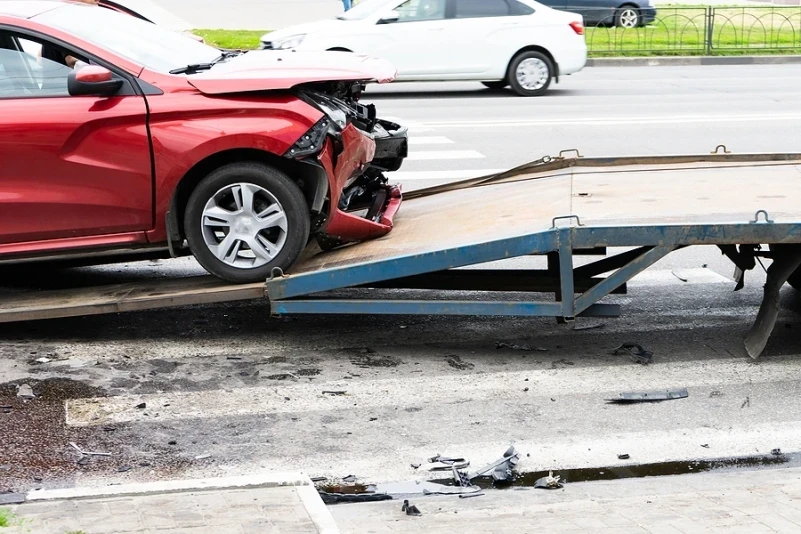What to Do When Your Diminished Value Claim Is Denied in Orlando

If your car was damaged in a crash caused by someone else, you may be entitled to more than just repair costs. Even after a vehicle is fixed, it usually loses resale value simply because it now has an accident history. This loss in market value is known as diminished value. In Florida, drivers can file a claim to recover that lost value—but many are surprised when their claim is denied.
Diminished value claims are often met with resistance from insurance companies. Adjusters may reject them outright or offer far less than what your vehicle’s value has actually dropped. If you’re dealing with a denial in Orlando, it’s important to understand why it may have happened and what steps you can take to challenge the decision.
This guide walks you through what to do next after a diminished value claim denial, with a focus on Florida’s laws and the legal options available in Orlando.
Understanding What a Diminished Value Claim Covers
Diminished value refers to the difference between what your vehicle was worth before an accident and what it is worth after repairs. Even if the repairs were done properly, the fact that your car has a damage history makes it less attractive to potential buyers or dealers.
There are generally three types of diminished value:
-
Inherent diminished value – This is the most common type. It accounts for the loss in resale value strictly because the vehicle was involved in a crash, regardless of repair quality.
-
Repair-related diminished value – This occurs when the repairs were incomplete, low-quality, or involved the use of aftermarket parts.
-
Immediate diminished value – The difference in value immediately after the accident, before any repairs are made.
In Florida, if someone else is responsible for the crash, you are legally allowed to pursue a diminished value claim through their insurance provider. This is especially relevant in cities like Orlando, where traffic accidents are common and vehicles depreciate quickly.
Why Insurers Deny Diminished Value Claims
There are several reasons why an insurer might deny a diminished value claim. Understanding the reasoning behind the denial is key to deciding how to respond.
-
They claim the repairs restored full value – Many insurers argue that once the car is repaired, it has no additional loss in value. This is not accurate in most cases, especially when it comes to newer vehicles or high-end models.
-
They dispute the amount of the claim – Sometimes, insurers accept that there is diminished value but disagree with your valuation. If you didn’t provide supporting evidence—like an expert appraisal—they may reject the figure as inflated.
-
They say your car had pre-existing damage – If your vehicle already had cosmetic or mechanical issues before the accident, the insurer may argue that its value was already compromised.
-
They rely on internal formulas – Insurance companies often use in-house calculators that undervalue diminished loss. These tools aren’t always transparent and often produce figures far lower than market data would suggest.
-
They believe the vehicle isn’t eligible – Some insurers deny claims for vehicles that are older, have high mileage, or have a low market value, claiming they aren’t eligible for diminished value recovery.
Regardless of the reason, a denial is not the end of the road.
How to Respond to a Denied Diminished Value Claim
If your claim has been denied, don’t assume the decision is final. Florida law gives you the right to dispute unfair claim denials. Here are the steps you can take to challenge the outcome:
1. Review the denial letter carefully
Start by reading the insurer’s explanation. Make note of the reasons they gave for denying your claim. Sometimes, denials are based on incorrect assumptions or missing documentation. If you can identify what the insurer is disputing, you’ll be in a better position to respond.
2. Gather evidence to support your claim
The more documentation you have, the stronger your case. Helpful evidence may include:
-
A professional appraisal from a qualified vehicle damage expert or diminished value specialist.
-
A copy of your repair records.
-
Before-and-after photos of the vehicle.
-
Comparisons of similar vehicles with and without accident histories.
-
Documentation of your car’s market value before the crash (Kelley Blue Book or NADA reports can help).
In Orlando, there are independent appraisers familiar with local vehicle markets who can provide credible third-party assessments. These reports carry more weight than estimates provided by the insurer.
3. File a formal appeal with the insurance company
Once you have your documentation in order, write a letter disputing the denial. Be clear and professional. Include your evidence and explain why you believe the denial was incorrect. Reference Florida case law or insurance regulations if applicable. Sometimes, a well-supported challenge can lead to a reconsideration or improved offer.
4. Consider hiring an attorney
If your appeal is ignored or denied again, speaking with a personal injury attorney in Orlando can help. Many attorneys offer free consultations and can tell you whether your case is strong enough to pursue. A lawyer can communicate directly with the insurance company, negotiate on your behalf, and file a lawsuit if necessary.
In some cases, if the insurer is acting in bad faith—such as denying valid claims without reasonable explanation—they could be subject to penalties under Florida’s insurance laws.
5. File a small claims lawsuit if needed
If the amount you’re seeking is under the small claims court limit (currently $8,000 in Florida), you can file a case yourself in Orange County Small Claims Court. This can be a faster and less expensive way to resolve a dispute, though it still requires preparation and supporting documentation. You’ll need to present evidence of your vehicle’s diminished value and the insurer’s refusal to pay.
Knowing Your Rights Under Florida Law
Florida courts have recognized that vehicle owners are entitled to pursue diminished value damages when someone else causes a crash. In some past cases, courts have ruled that insurance companies cannot assume repairs restore the car’s value.
Also, Florida is not a no-fault state when it comes to property damage. That means if another driver is at fault, you have the right to file a third-party claim against their insurer—not just your own. This distinction is important when seeking diminished value compensation.
Avoiding Common Mistakes After a Denial
After a claim denial, it’s easy to give up or rush into the next step without enough preparation. Here are a few things to avoid:
-
Accepting a lowball offer without question – If an insurer offers a small amount just to close the case, be wary. You may be entitled to more.
-
Waiting too long to act – Florida has a four-year statute of limitations for property damage claims, but delaying too long can weaken your case and make it harder to gather documentation.
-
Providing inconsistent information – Make sure everything you submit is accurate and consistent with your repair records and damage reports.
-
Posting about the accident online – Avoid posting details or photos on social media, which can be used against you.
Conclusion
Getting a diminished value claim denied is frustrating, especially when you’re already dealing with the aftermath of a crash. But in Orlando, you have legal options. Whether through a strong appeal, legal representation, or a small claims filing, you can push back against an unfair decision.
The key is preparation. Document everything, seek expert help, and don’t settle for less than your vehicle is worth. An experienced personal injury attorney can help you understand your rights and take action if the insurance company refuses to honor them.
If your claim was denied and you’re not sure where to start, reaching out for legal guidance may be the best first step. You don’t have to take on the insurance company alone.

 Call Us Today - It's Free
Call Us Today - It's Free